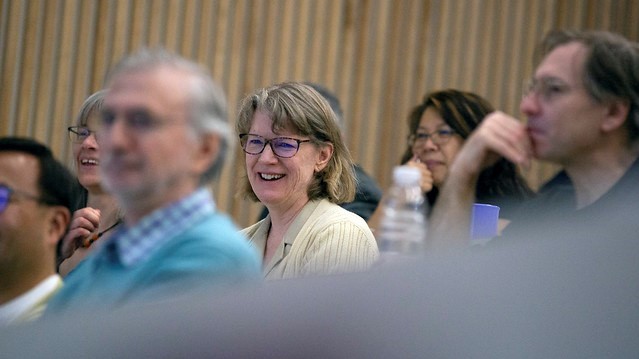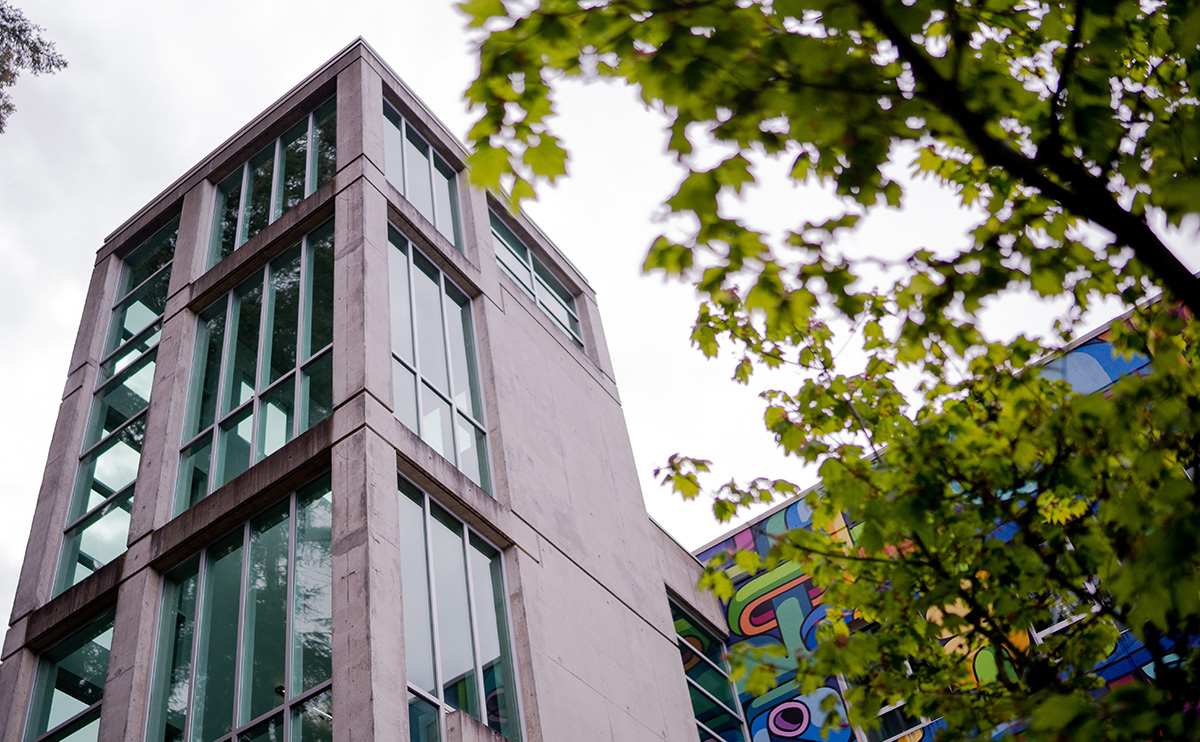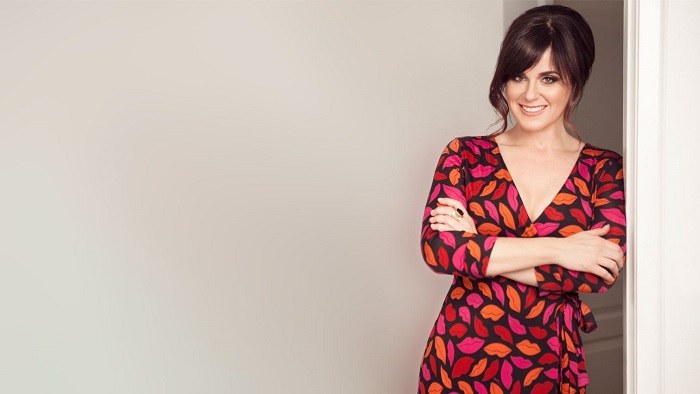This is a bimonthly newsletter featuring community updates from Capilano University President and Vice-Chancellor Paul Dangerfield.

Your thoughts and feedback are welcome: president@capilanou.ca
October 2021
Walking in the grey—Liminal leadership
In my daily Hatha yoga sessions, it’s breathing rather than “bendiness” that’s the goal. The focus on long, slow breaths primes me for mindfulness, and approaching the day’s activities with clear and calm intention. As I enter my second five-year term at the helm of Capilano University, I’ve never appreciated this powerful practice more.
For more than a year now, we have all been what I have come to describe as “walking in the grey”—an in-between place where old ways have shattered and a new state has not yet solidified. And as a community, I think we deserve a collective gold star for our adaptability and resilience so far. Still: the journey continues, and the challenge of leading through uncertain times—a burden long familiar to society’s designated leaders—is now felt by everyone. At CapU, we are committed to preparing all our people to meet this new reality with confidence.
Liminal leadership is another arrow in the quiver of leadership skills. It can be learned and practiced. In the leadership classes I’ve taken and taught, we often talk about how to approach decision-making when we don’t have enough information. In transitional times, we need to acknowledge those things we truly can control or influence, along with the many things we can’t. We can’t, for example, control COVID’s fourth wave—but we can choose to vaccinate and wash our hands and wear our masks.
Likewise, we can choose our approach to uncertainty: we can get stuck in fear or doubt, or we can practice meeting change with optimism. The recent return to campus is a great example: with a positive lens, it becomes an exciting opportunity for engagement and community-building—and a return to learning in a way that we know is successful and benefits us all in so many ways.
Recent research in this emerging field of leadership studies offers three critical competencies for strengthening our ability to navigate ongoing uncertainty: caring for others; maintaining self-respect; and believing in future possibilities. It’s that simple—and that complicated. To rise from languishment to engagement, we need only strive to move out of our heads and into our hearts to help make something better.
I am proud to point to CapU faculty who are modelling these lessons in very tangible ways. Lori Walker embeds mindfulness meditation into all of her communications classes, and offers free twice-weekly guided meditation classes online to the entire campus community. And Carolyn Stern—consultant and author of a forthcoming book on becoming an emotionally strong leader—is the guiding force behind our Leading with Emotional Intelligence in the Workplace class, offered for the first time this past spring—but certainly not the last.
I’m going to give them the last word here. Meantime, I am reminded that gratitude begets optimism—and I am so grateful for the continued support of our many interconnected communities as we move through these turbulent times together.
Lori Walker, School of Communications

“Am I really being threatened? Can I respond in a more thoughtful way?”
“Mindfulness offers a way to recognize our fear response and modulate our reaction. Our brain is designed to react in fear: it is the default to keep us safe. Meditation practice slows us down just a little to help recover our calm and ask: what is another way to look at this situation? Getting through this grey zone is about helping people to check in with their bodies to identify those fear reactions and stop the negative thinking before it does harm—to ourselves, or others.”
“Beginning with our first class together, I do one-minute meditations to help my students notice any storm clouds that are gathering on their internal horizons—a stomach in knots; a tight throat or jaw. Our body sensations are like our internal meteorologists; they tell us when a storm is coming if we are able to notice them.”
“Mindfulness helps to grow this awareness. It’s not a religious practice but based in social neural biology and cognitive behavior techniques. You can do it on the bus, in the car. My students love it; they tell me it is a skill that increases their self-compassion and confidence. I think it speaks to the values of this university that our students leave here with interpersonal and emotional skills, and not just knowledge.”
Carolyn Stern, School of Business
“Why hide the thing that bonds us all as humans?”
“I’ve been talking about the value of emotional intelligence in leaders for more than 20 years—and now the world is finally ready to hear it because COVID-19 shone a light on the fact that emotions are not left at the door when you walk into school or the office. My new business course is more than a chapter in a textbook: each student gets an assessment to personalize their learning and help them enhance 15 different emotional competencies. It’s a lifelong journey to learn how to manage our emotions effectively instead of letting them manage us.”
“We need to work on closing the corporate “empathy gap” by listening better, checking assumptions, modelling vulnerability, and giving others the benefit of the doubt. Especially when things feel unstable, we need to be able to check in with ourselves to understand what story we’re telling—about ourselves, and others—and then remember that our feelings are not facts: they are just messengers of the things we really need to focus on.”
Stay well,
Paul


